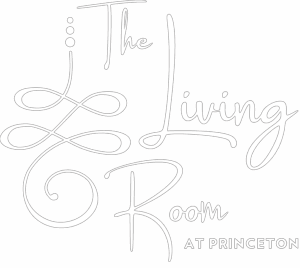Raising Awareness About Prescription Medication Addiction
In the 21st century, prescription drugs are woven into everyday life. They help ease suffering, manage chronic conditions, and bring comfort in difficult times. But in New Jersey, as in much of the United States, we’re also seeing the quiet rise of something more troubling—dependence. The line between relief and addiction can be thin, and often, people don’t realize they’ve crossed it until they’re caught in a cycle that feels hard to escape.
Finding Peaceful Pathways to Recovery
At The Living Room, we meet people where they are, with compassion, clarity, and care. Our approach to healing is grounded in mindfulness, balance, and evidence-based treatment. We do more than simply treat symptoms. We listen, gently illuminate underlying patterns, and offer a space where lasting transformation can begin.
Change begins with awareness and knowledge. Awareness is something we can help you cultivate once you are in our care. In the meantime, we can share knowledge.
Which Prescription Drugs Carry the Highest Risk of Dependence?
Though many prescription medications are life-saving when used correctly, certain types have a higher risk of misuse. These substances can shift from helpful tools to sources of suffering—especially for those with a history of trauma, chronic pain, or emotional distress.
The most commonly misused prescription drugs in New Jersey and beyond include:
Opioid Pain Medicines
Drugs like hydrocodone, oxycodone, and fentanyl are powerful pain relievers often prescribed after surgery or injury. They can also lead to tolerance and physical dependence, even when used as directed. The opioid epidemic began decades ago—but its impact is still felt deeply today, often through illegal or unmonitored access.
Benzodiazepines
Prescribed to reduce anxiety or manage insomnia, medications like Xanax, Klonopin, and Valium can create rapid tolerance. Many people begin using them for relief and find themselves reliant over time. Withdrawal from benzodiazepines can be medically dangerous and should never be attempted without professional supervision.
Amphetamines
Drugs such as Adderall, Ritalin, and Vyvanse are typically prescribed for ADHD. They are also stimulants with high abuse potential. In competitive or high-pressure environments, their appeal can be strong—but the consequences of misuse can be serious, especially for those in recovery from any substance use.
Prescription Sleep Aids
Medications like Ambien and Lunesta are not technically benzodiazepines, but they act similarly on the brain’s GABA receptors. Over time, users may experience dependency or rebound insomnia. These drugs are often misunderstood—but they too carry risks, particularly for people with a history of substance misuse.
Barbiturates and Other Sedatives
Once more commonly prescribed, barbiturates like amobarbital and butobarbital are now used in more limited circumstances due to their strong sedative effects. Similarly, muscle relaxers such as Soma and Flexeril should be used cautiously and for short durations. Both categories can be habit-forming and are best avoided by individuals with a history of addiction.
Additional medications such as Gabapentin, Lyrica, and over-the-counter substances like Dextromethorphan (found in cough syrups) also present risk for misuse—but the above categories account for the majority of prescription drug addictions we see.
Prescription Drug Addiction Doesn’t Always Announce Itself
Prescription drug dependence or addiction rarely begins with reckless intent. More often, it starts with a simple need—pain relief, restful sleep, reduced anxiety. Over time, the body adapts, tolerance increases, and more medication is required to achieve the same effect. Eventually, physical and emotional dependency may form. There is no guilt, blame or shame here. Only support.
At The Living Room, we’ve learned that awareness is the first step. We encourage individuals to observe their patterns—not with judgment, but with curiosity and care. Recovery begins with recognition.
Safer Paths to Healing from Prescription Drug Dependence
One silver lining of increased awareness around prescription drug addiction is the rise of safer alternatives. Today, doctors are increasingly offering non-opioid pain relief options, non-narcotic sleep treatments, and ADHD medications that carry fewer risks. If you’re managing chronic pain or any ongoing health condition, ask about these alternatives—they exist, and they’re often underused.
People with a history of addiction should speak openly with their medical providers about non-habit-forming options. A good doctor will meet you with respect and honesty.
Treatment That Honors the Whole Person
Prescription drug addiction can be deeply disruptive—but healing is absolutely possible. At The Living Room in New Jersey, we offer customized, evidence-based treatment that honors each person’s unique path. Our care includes:
- Mindfulness-based therapy to cultivate awareness and reduce reactive patterns
- Medical detox when needed, in a safe and supervised setting with our partner program.
- Trauma-informed counseling to explore root causes, not just behaviors
- Community-based support to foster connection and reduce isolation
Rather than simply “fixing” the problem, we invite individuals to explore it—gently, with compassion. That’s what makes our approach unique. Quiet reflection, steady guidance, and proven treatment all work in harmony here.
A Space to Begin Again
The journey toward recovery may feel overwhelming at first—but it is not meant to be traveled alone. Whether you or someone you love is struggling with opioid misuse, amphetamine dependency, or any other form of prescription drug addiction, The Living Room offers a safe and welcoming space to begin.
Contact us when you’re ready. We’ll meet you as you are—and walk beside you, one mindful step at a time.
Let’s talk about what The Living Room can do for you or the one you love.

